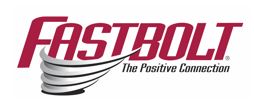
Understanding Regulatory Compliance
Fastbolt Corp continuously efforts to maintain ROHS, REACH, and Conflict Minerals compliance for all products we sell by working with our representatives, manufacturers, and importers throughout the world, to ensure that our supply chain partners comply with their obligations under these regulations.
Some summaries and updates for the regulatory compliances we support are below.
RoHS:
RoHS (Restriction of Hazardous Substances) is a directive which aims to restrict certain dangerous substances commonly used in electronic and electronic equipment.
REACH:
REACH (Registration, Evaluation, Authorization and Restriction of Chemicals) is a European Union regulation entered into force on June 1st, 2007.
REACH was adopted to improve the protection of human health and the environment from the risks that can be posed by chemicals, while enhancing the competitiveness of the EU chemicals industry. It also promotes alternative methods for the hazard assessment of substances in order to reduce the number of tests on animals.
REACH establishes procedures for collecting and assessing information on the properties and hazards of substances.
To comply with the regulation, companies must identify and manage the risks linked to the substances they manufacture and market in the EU.
WFD:
The European Union (EU) Waste Framework Directive (WFD) was revised in 2018, introducing mandatory requirements for a centralized database of Substances of Very High Concern (SVHCs) in articles and products to be managed by the European Chemicals Agency (ECHA).
Companies that produce, import or supply articles containing Candidate List substances (SVHC’s) have to submit information on these articles placed on EU market to the SCIP database. These articles can be produced in the EU or imported from non-EU countries. Effective January 5th, 2021
SCIP:
The SCIP is the database for information on Substances of Concern In articles as such or in complex objects
Companies placing products on the market in the EU are required to submit information to the SCIP database for any product that contains SVHCs (Substances of Concern In Products). This means submissions are required for each article and substance present in a product, potentially requiring numerous related submissions for a single product.
The database will be used by downstream waste processors to ascertain important information regarding safe article disposal. Fastbolt can help you stay connected to this new market with quality assurance and top-tier lab testing enabling companies to meet their SCIP database reporting requirements more efficiently.
Conflict Minerals:
Dodd-Frank Wall Street Reform Act – Conflict Minerals, Section 1502.
Effective January 1st, 2021 a new law was applied across the EU – the Conflict Minerals Regulation.
EU importers of tin, tantalum, tungsten and gold will need to carry out due diligence on all supply chain aspects from this date by law.
Businesses will have to check where the minerals and metals they import have been mined and processed responsibly.
Fastbolt can help facilitate supply chain data management, enabling companies to more efficiently meet the reporting requirements described above.
www.fastboltcorp.com

